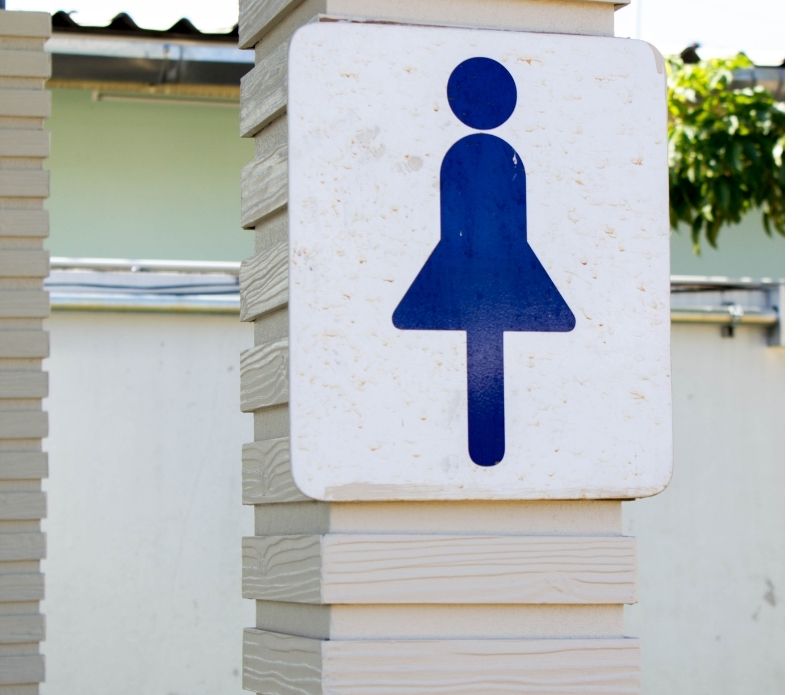As you may already know, incontinence is the accidental leakage of human faeces or urine from the body. To prevent it, you have to consistently eat a high fiber diet, drink plenty of liquids (especially water), exercise regularly, make healthy lifestyle choices, and develop good toilet habits.
Follow these tips when trying to prevent incontinence. But how would someone know if he or she has symptoms of incontinence?
In this post, I’ll walk you through different signs and symptoms that may indicate incontinence. I will also give you detailed tips that can help you prevent incontinence.
Medical Disclaimer: I am not a medically trained professional and the information attached in this article is intended to guide and support. Should you have any concerns please consult your medical clinician.
Incontinence at a Glance
Incontinence simply means an unwanted release of faeces or urine from the bowels or bladder. Most times, this leakage can be of urine and faeces at the same time. A male or female can experience it at any age, but it affects people of age more often. Incontinence can be treated, but the best option you should take is to prevent it totally.
Incontinence can be caused by an unhealthy bladder or bowel, but let’s first talk about the signs of a healthy bladder or bowel.
For a Healthy bladder and bowel, the following are the signs:
- No single form of accidental leaks or discharge
- Having bowel motions that are very easy to pass out
- Using the toilet between 3 times a day and three times a week
- Passing out urine that is usually pale yellow
- Urinating between 4-7 times in a single day
These are clear indications that your bowel and bladder are doing pretty well. Now let’s talk about the symptoms of an unhealthy bladder or bowel.
Symptoms of an Unhealthy Bladder and Bowel
- Severe constipation
- Having a heavy bladder after urinating
- A stop and start urination stream
- Heaviness and burning sensation when urinating
- Passing little amounts of urine too many times in a day
- Accident discharge
- Always visiting the bathroom during sleeping hours
If any of the above symptoms relate to what you are experiencing, then you should go and see your doctor.

How to Prevent Incontinence
Incontinence can be treated, but there are some healthy steps you can take to prevent it. A number of these steps are listed below.
- Making developmental lifestyle decisions
- Practising good toilet habits
- Getting your body moving
- Eating a healthy fiber diet
- Drinking lots of fluids
Making Developmental Lifestyle Decisions
There so many advantages in making healthy lifestyle choices. And preventing incontinence happens to be an important one among them. Eating healthy food and working on your weight will also help in preventing incontinence.
Here are tips for maintaining a healthy lifestyle:
- Always treat urinary tract infections on time; delaying it may result in worse issues
- The chronic cough that results from smoking weakens the pelvic floor; this may cause incontinence. The best thing to do is quit smoking totally
- Do not self-diagnose. Always seek medical advice whenever you have health issues
- Maintain a healthy weight. Too much bodyweight weakens the muscle of the pelvic floor
Practising Decent Toilet Habits
Apart from preventing incontinence, good toilet hygiene will prevent most urinary tract diseases from affecting you. Here are the tips for doing this:
- Work on treating constipation with a good diet and treat Laxatives with short-term solutions. Exercise will also be useful to you here
- Don’t rush when defecating
- When passing out faeces in the toilet, sit in an upright position; this will help your bowel’s motion. Straighten your back, bulge out your stomach a little bit, place your elbows on your knee, and then place your foot on a footstool
- Hold it in until your bladder is full
Getting Your Body Moving
Physical exercise helps to stimulate muscular activities in your bowel. This will greatly reduce the pressure on the pelvic floor.
Here are some steps you should consider for this trip:
- If you haven’t exercised for a long period, ensure you meet your doctor before starting
- Too much heavy lifting, high-impact exercise, and obesity can all weaken the pelvic floor. Some specific exercise will be enough to strengthen the muscles (pelvic floor)
- A 30 minutes walk or 10 minutes jog every day will do the job. You don’t have to involve yourself in a high-impact exercise

Eating a High-Fiber Diet
To keep your bowels very healthy, your daily meals should contain a lot of fiber. A major cause of constipation is a poor eating diet. A sure way to deal with this is to pay attention to anything that comes. Here are some tips that will help you.
- Get up to two litres of water into your body every day
- Aim for at least 30g of fiber daily
- Whole grain and cereals will also be a healthy choice for you here
Drinking Lots of Fluids
Your bladder can get irritated when your body is dehydrated. This is a reason you have to drink lots of water daily.

Water is the best way to prevent dehydration, but there are also some other hydrating fluids you can use alongside the water.
To know if your body is getting enough water every day, you should observe the color of your urine. Its color should be
- Drink lots of fluids after exercise or when the water is hot
- Get up to two litres of fluid into your body every day
- Do not wait until you become thirsty before drinking water
Now that you know the steps involved in preventing incontinence, you also need to know the steps you should take in treating it. Below are some of them
- Double voiding
This is a technique that will help you learn how to empty your bladder more completely. It involves going to the toilet and urinating, then waiting a few minutes before urinating again.
- Bladder training
After you have got the call by your bladder to urinate, you will have to delay it for some time. This will train your bladder to always do the right thing at the right time. A recommended time for this is two hours and thirty minutes.
- Fluid diet management
To control these unwanted urges, you need to reduce or stop the intake of acidic food, caffeine, alcohol, and general liquid consumption. Losing some weight through physical exercise will also be effective.
Conclusion
These are just behavioural techniques that I have suggested. If you have incontinence symptoms be sure to consult your doctor.
There is much that can be done these days to support you and your well being. I have reviewed and written an article about a non-surgical/invasive intervention which you may wish to read. The post is called “Innovo Incontinence Shorts” Do They Work?
If you have read this far then thank you, I would welcome any comments you have or indeed if you have dealt with with this issue.
Meantime look forward to seeing you again
Cordelia
Founder of Hey Spring Chicken

